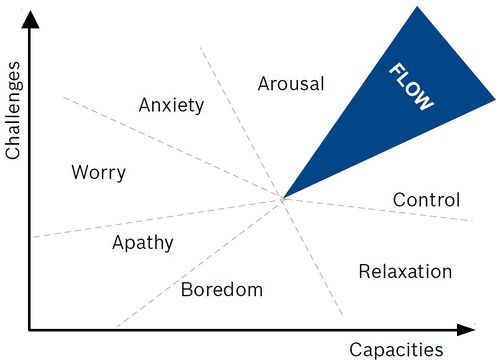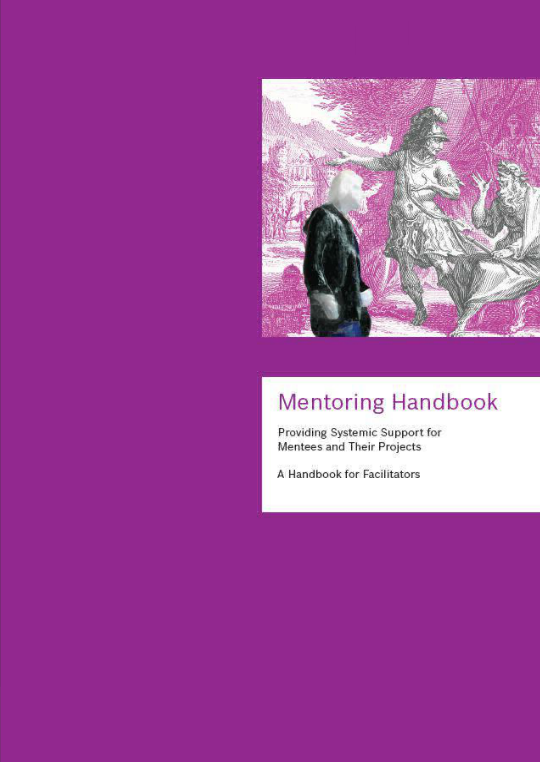Flow is the state when persons are deep involved in an activity or learning, causing a feeling of self-efficacy, lowering the barreer to leave their comfort zones towards new challenges.
M. Csíkszentmihályi examined the conditions of this “flow” experience. He identified that the challenges a person faces and his or her own abilities are in relation to each other responsible for a feeling of flow, boredom or feeling overstrained. If challenges and abilities are well balanced, a person acts with passion and without feeling like he or she is exerting tremendous effort. Creative activity, play, and elaborate rituals seem to stimulate and foster intrinsic motivation more than competitive ones.[1]
Range of FLOW
Flow is produced by a host of changing variables. When we do something for the first time we feel excited. If we do it repeatedly, we feel secure. If we do it every day, there is a danger we will start to feel bored. Therefore, we have to be aware that activities that once produced flow may fail to have the same result in another situation.
People need to learn about the causes of a flow and their contribution to it. The goal of reflection is to find their healthy balance, being able to work more constantly in a motivated way, while on the other hand identifying disfunctional or unbalanced behavior. A person who has been deprived of seeking “flow” activities could as well show symptoms that can include hunger, tiredness, sleepiness, sensitivity, and headaches...
References
- ↑ M. Csíkszentmihályi: Beyond Boredom and Anxiety: Experiencing Flow in Work and Play; 1975 San Francisco; p. 59
Nils-Eyk Zimmermann
Editor of Competendo. He writes and works on the topics: active citizenship, civil society, digital transformation, non-formal and lifelong learning, capacity building. Coordinator of European projects, in example DIGIT-AL Digital Transformation in Adult Learning for Active Citizenship, DARE network.
Blogs here: Blog: Civil Resilience.
Email: nils.zimmermann@dare-network.eu






